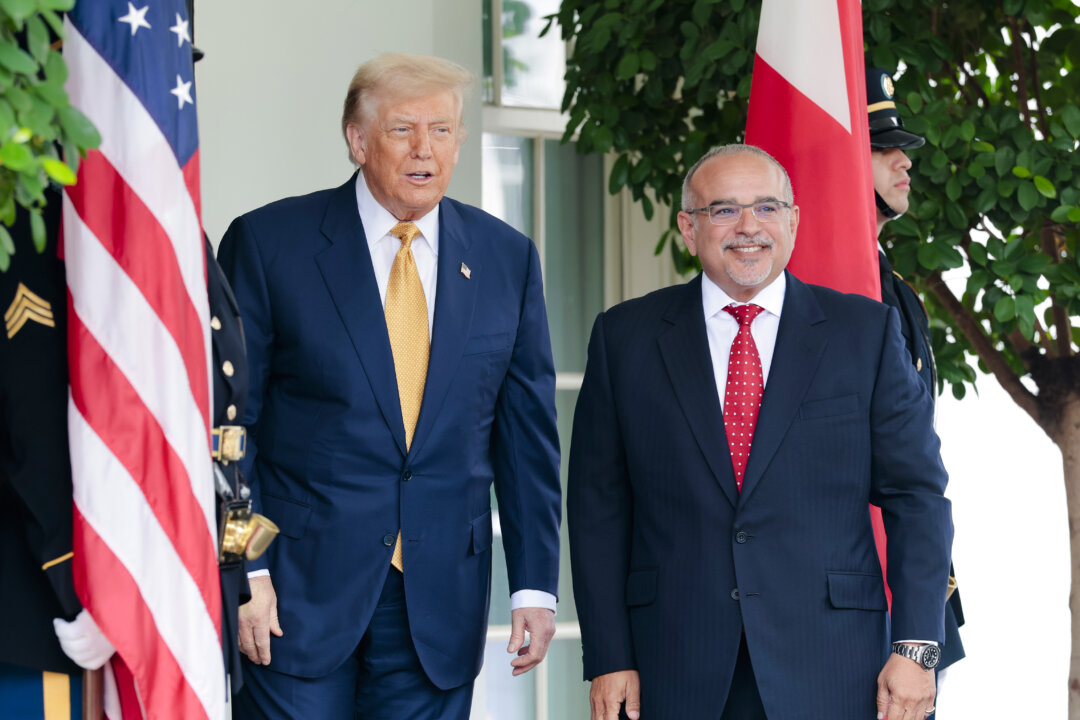Bahrain's Crown Prince Salman bin Hamad Al Khalifa made a significant mark in U.S.-Bahraini relations during his recent visit to the White House, where he engaged in high-stakes discussions with President
Did You Know
Sea otters hold hands while sleeping to avoid drifting apart in the water.
?
AD
Donald Trump. The talks culminated in a landmark agreement for a $17 billion investment from Bahrain into various sectors of the United States economy. This substantial financial commitment is poised to fortify economic ties between the two nations while creating approximately 30,000 jobs, showcasing Bahrain's proactive role in fostering international partnerships.
The discussions between the two leaders emphasized not only the economic investment but also the establishment of a civil nuclear partnership that reflects a commitment to peaceful cooperation in energy. Committed to enhancing bilateral relations, the meeting saw the signing of several agreements between Bahraini and American private firms, particularly in industries such as aviation, technology, and investment. This will likely open new avenues for collaboration, signaling a robust business future ahead for both nations.
Amid rising tensions in the Middle East, including ongoing conflicts in the Gulf region, this visit represents a crucial diplomatic effort that aims to stabilize and strengthen regional ties. The Crown Prince's investment announcement serves as a testament to Bahrain's ambition to navigate complex geopolitical landscapes with a forward-thinking approach. As the U.S. and Bahrain prepare to move forward, this partnership could become a cornerstone in promoting economic stability and regional security, illustrating the positive potential of international collaboration.
Q&A (Auto-generated by AI)
What are the key sectors for Bahrain's investment?
Bahrain's investment of over $17 billion in the US primarily targets key sectors such as technology, aviation, and industry. This strategic focus aims to strengthen economic ties and enhance cooperation between Bahraini and American firms. By investing in these sectors, Bahrain seeks to diversify its economy, moving away from oil dependency, and to foster innovation and growth in its private sector.
How does this deal impact US-Bahrain relations?
The $17 billion investment deal is a significant milestone in US-Bahrain relations, highlighting their growing economic partnership. It underscores Bahrain's commitment to aligning with US interests in the region, particularly concerning trade and security. Such collaborations enhance diplomatic ties, foster mutual economic benefits, and contribute to regional stability, indicating a strong alliance between the two nations.
What historical ties exist between Bahrain and the US?
Bahrain and the US have maintained a strategic partnership since the 1970s, with Bahrain hosting the US Navy's Fifth Fleet, which plays a crucial role in maritime security in the Gulf. Historically, both nations have collaborated on various economic, military, and political fronts, reinforcing their alliance through trade agreements and mutual interests in regional stability, particularly concerning Iran and broader Middle Eastern dynamics.
What are the implications of this investment for jobs?
The investment is expected to create approximately 30,000 jobs in the US, indicating a significant economic impact. This job creation will likely span various sectors involved in the agreements, including technology and aviation. Such employment opportunities not only bolster the US economy but also demonstrate Bahrain's commitment to contributing positively to its partner's economic landscape.
How does this investment relate to regional security?
The investment deal is closely tied to regional security, as it reflects Bahrain's strategic alignment with US interests in countering threats from Iran and enhancing stability in the Gulf region. By strengthening economic ties, both nations aim to foster a cooperative environment that supports security initiatives and addresses challenges posed by geopolitical tensions, particularly in relation to military and economic cooperation.
















